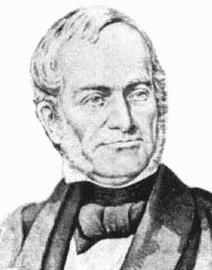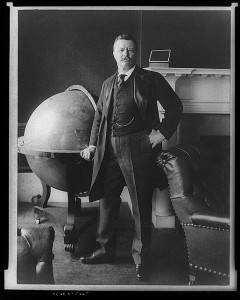Earlier this month, I spoke at the Winter Haven, Florida, 9-12 Project. Last night I was closer to home at the Lakeland 9-12 Project meeting. As with the Winter Haven group, these are sincere citizens who want to see substantive change, as opposed to a vague, dreamy “hope-and-change” mantra without meaning. They are committed to restoring the original intent of the Constitution and in helping educate the public on basic principles.
My topic was the effect of third parties on elections. Here are a few of my prime examples.
 In 1844, the Liberty Party entered the presidential election as an alternative to the Democrats and Whigs. This party had one issue only—the abolition of slavery. James G. Birney, a man of principle and courage was its presidential candidate. He had put his life on the line many times for his beliefs. I admire him. But since this was a one-issue party, defeat was inevitable; you have to develop a broad agenda and distinct philosophy of government to attract more people to your side. However, this small party probably turned the election in a direction it wouldn’t have gone otherwise. The Democrats were the pro-slavery party, while the Whigs, though divided on the issue, at least had some reformers who wanted to take steps to eliminate slavery. If any progress were to be made for abolition of slavery, it would have been far better had the Whigs won. However, the Liberty Party, although it took only 2% of the popular vote, drained enough support from the Whigs that the Democrats carried New York, the state with the largest number of electoral votes. If the Whigs had won that state, their candidate, Henry Clay, would have been president. Instead, we got James Polk, who supported the slave system.
In 1844, the Liberty Party entered the presidential election as an alternative to the Democrats and Whigs. This party had one issue only—the abolition of slavery. James G. Birney, a man of principle and courage was its presidential candidate. He had put his life on the line many times for his beliefs. I admire him. But since this was a one-issue party, defeat was inevitable; you have to develop a broad agenda and distinct philosophy of government to attract more people to your side. However, this small party probably turned the election in a direction it wouldn’t have gone otherwise. The Democrats were the pro-slavery party, while the Whigs, though divided on the issue, at least had some reformers who wanted to take steps to eliminate slavery. If any progress were to be made for abolition of slavery, it would have been far better had the Whigs won. However, the Liberty Party, although it took only 2% of the popular vote, drained enough support from the Whigs that the Democrats carried New York, the state with the largest number of electoral votes. If the Whigs had won that state, their candidate, Henry Clay, would have been president. Instead, we got James Polk, who supported the slave system.
 Then, in 1912, Theodore Roosevelt challenged sitting president William Howard Taft for the Republican nomination. Roosevelt was denied the nomination, and was so angered by it that he started his own third party known as the Progressives [with a nickname of Bull Moose]. Roosevelt effectively split the Republican vote in that election, putting Democrat Woodrow Wilson in the White House. Wilson, who was even more progressive than Roosevelt, championed the idea that the Constitution was a “living document,” and that original intent should be shelved. If Taft hadn’t been opposed by Roosevelt, he probably would have won reelection and Wilson never would have become president—he garnered only 42% of the popular vote.
Then, in 1912, Theodore Roosevelt challenged sitting president William Howard Taft for the Republican nomination. Roosevelt was denied the nomination, and was so angered by it that he started his own third party known as the Progressives [with a nickname of Bull Moose]. Roosevelt effectively split the Republican vote in that election, putting Democrat Woodrow Wilson in the White House. Wilson, who was even more progressive than Roosevelt, championed the idea that the Constitution was a “living document,” and that original intent should be shelved. If Taft hadn’t been opposed by Roosevelt, he probably would have won reelection and Wilson never would have become president—he garnered only 42% of the popular vote.
Finally, in 1992, the entrance of Ross Perot into the race took away 19% of the vote that traditionally would have gone to the Republicans. The result? The presidency of Bill Clinton.
More often than not, third parties allow someone to win who normally wouldn’t. And the one who wins quite often is worse than the one from whom votes were drained. In an attempt to achieve the perfect, third parties usually end up providing us with a raw deal. As the cliché goes, the perfect can be the enemy of the good.
If I have one electoral fear right now, it’s that someone, whether it be Donald Trump or Ron Paul, will decide to run as a third-party candidate in 2012, thereby ensuring an Obama reelection. I hope history can come along and be a guide—don’t destroy our best chance of reversing what has occurred on Obama’s watch. Don’t allow disunity to give this man a second term. I’m not sure the country can survive another four years.
